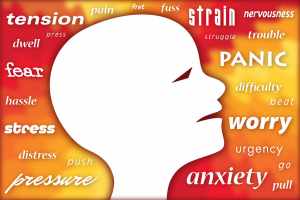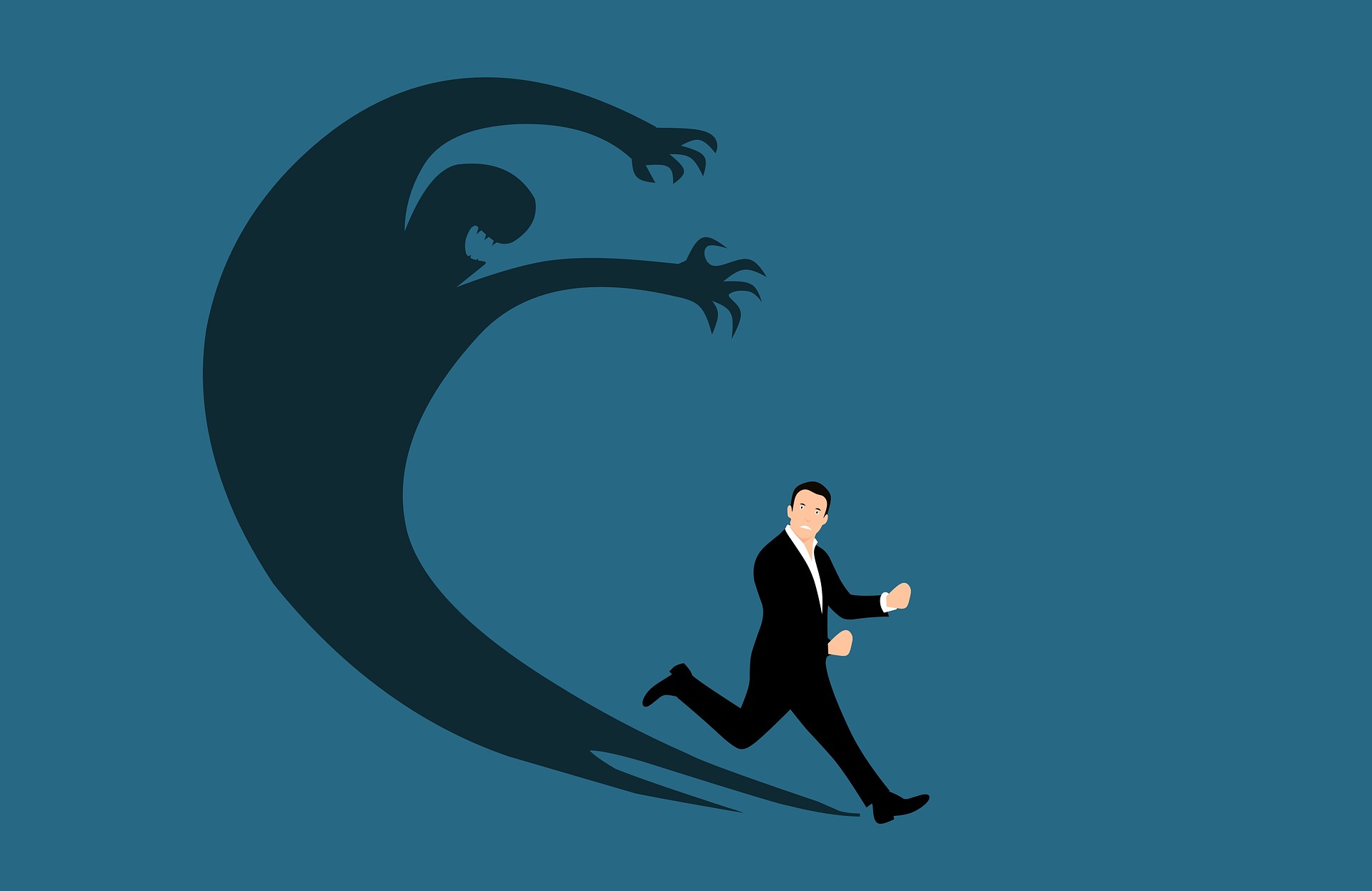Anxiety refers to intense worry and excessive fear about everyday situations. Signs of tiredness, sweating, and palpitations can prove that you have anxiety in certain situations. Experiencing occasional anxiety happens to each one of us. However, people with anxiety disorders frequently have intense fear and excessive and persistent worry about everyday situations. Often, anxiety disorders involve repeated episodes of panic attacks and stressful conditions. In this blog, we will help you understand how to know if you have anxiety.
These feelings of anxiety are usually uncontrollable and are long-lasting. It can make you avoid daily situations, which also includes important events. Anxiety does not happen only to a particular age group. It can begin from childhood and can continue till the rest of adult life and old age.
The anxiety disorders include generalized anxiety disorder, specific phobias, social and separation anxiety disorder. These disorders can sometimes overlap each other. Sometimes, several cases need anxiety treatment on medical terms. In such cases, one should seek guidance from a psychiatrist or a psychologist.
Table of Contents
How to know if you have anxiety of different types
Anxiety disorders can be of several types. Check out the following conditions:
Generalized anxiety disorder
Feelings of excessive worry and tension without any reason. This feeling can occur in daily situations. It affects social relationships, work, and financial matters.
Panic disorder
It is a condition that is characterized by periodic and unexpected panic attacks. Such attacks usually have a short duration but can last for hours. The symptoms of panic attacks include sweating, dizziness, and palpitations. It can lead to losing control with cold or hot flashes. One way to answer “how to know if you have anxiety?” is by recognizing panicky behavior.

Social anxiety disorder
These are signs of excessive self-consciousness in daily situations. There is a tendency of self-awareness in a negative image. In individualistic cultures like the US, these phobias tend to focus on the fear of being negatively evaluated. Collectivistic cultures such as Japan focus on whether they’d do something to offend members of the same group.
Specific phobias
It refers to an intense, irrational fear of a specific event or object, such as flying or scare of spiders. The fear can be so excessive that one can tend to avoid stepping out of the house. You can know if you have anxiety by speaking to a psychologist and asking for help in such cases.
Agoraphobia
It is an irrational fear of specific situations in which individuals feel that they will not receive help in incapacitating or embarrassing events. For instance, traveling via airplane or standing in line with a crowd.

Separation anxiety
It occurs mostly to kids and older adults but can happen to anyone. Separation anxiety is a feeling where you’d feel that your loved one will leave you. A feeling of something bad may happen to your loved one is also very prominent in this case. Parents should know if their children have anxiety issues and try to eliminate situations that lead to such a condition.
Mutism in social situations
This form of anxiety is usually seen in children. They tend not to talk to parents, teachers, or friends in social scenarios.

Medication-related anxiety disorder
This takes place when an individual does not get the drug or alcohol he or she wants. Usually occurs to drug addicts or smokers.
PTSD
Post Traumatic Stress Disorder is when one experiences a traumatic event and is unable to forget it. The effects of the event affect them so badly that they tend to turn anxious about the present. How to know if you have anxiety from PTSD? If you constantly keep remembering the traumas of past events, you might have this condition. It is best to contact a psychologist in such cases.
OCD
Obsessive-Compulsive Disorder is an anxiety disorder where individuals have recurrent disturbing thoughts. They are not able to prevent these unless they engage in specific behaviors. Washing of hands and biting nails are a few instances.
What does it mean to have an anxiety disorder?
Anxiety disorders take place when feelings of anxiety become intense and persist for long periods. It can be regarded as a mental disorder.
National Institute of Mental Health (NIMH) suggests that all types of anxiety disorders focus on only one aspect, i.e., the feeling of worry and fear. This takes place mostly in generalized anxiety disorder, panic disorder, and phobias.
Both genetic and environmental factors are responsible for these anxiety disorders. According to NIMH, these require several interventions such as medication and psychotherapy.
Correct treatment and diagnosis can help to remove feelings of anxiety. The following symptoms of anxiety are:-
Excessive worry
People having GAD tend to be more concerned about relations, work, and financial issues. A sign of extreme worry is always present in such people. Hard to manage, these feelings can ruin sleeping patterns as well as a concentration in workspaces.

Sleep problems
The sleep schedule is ruined, or one has insomnia in such cases. The Anxiety and Depression Association of America (ADAA) has mentioned that anxiety is a primary reason behind sleeping problems. It is important to address the underlying problems to find out a better sleep pattern.
Irrational fears
It occurs mostly in phobias; it is an intense fear towards an event or object. These may offer fear towards an animal, the natural environment, or illness and injections. This can be manageable if the person tries his/her best not to pay attention to these objects.
Muscle tension
Constant clenching of the jaw, biting of lips and nails, or flexing muscles are symptoms of anxiety disorders. This is seen as so common that sometimes it does not fall as an anxiety disorder in the bare eyes. Regular exercise and proper treatment can help to remove these activities.
Chronic indigestion
According to ADAA, indigestion, loose motions, and acidity are prevalent when you go through extreme anxiety. It is important to consult a dietician and a psychologist so that these problems do not take place any more.
Stage fright
Falling under social anxiety is the fear you tend to have when you’re about to go on stage. They tend to practice for weeks because they feel like they will face judgments. Consultations from psychologists can help to deal with the situation better but are usually incurable.

Self-consciousness
This is when individuals tend to create conversations with themselves every time, even at a social event. They feel extremely self-conscious, which makes them blush, sweat, or even nauseated. This usually makes people lose relations or even build new relations.
Panic
A sudden feeling of fear and helplessness with several symptoms such as breathing problems and dizziness can be panic. Having it for long time periods can make it fall under panic disorders. These are mostly activated in specific situations or events.
Flashbacks
Falling under PTSD or Post Traumatic Stress Disorder, one tends to relive their negative events. Losing a loved one or facing a natural disaster like a tsunami can cause major flashbacks. Such experiences are mostly based on trauma. Symptoms of avoidance and arousal are also prevalent in such cases.
Perfectionism
Present mostly in OCD; this is a tendency to make everything right. It is a dire need to make every situation correct. Habits of excessive cleaning or being extremely conscious of one’ s physical self are signs of perfectionism. The person goes through excess thinking and stress to make situations go perfect.
Compulsive behaviors
Also falling under OCD is the behavior which one portrays out of compulsion. Biting of nails or constantly washing clothes is a sign of this syndrome. Unreasonable thoughts and rituals make a person do all this work.
These symptoms do not take place due to the use of substances. It usually happens due to genetics or hereditary factors. Medical diagnosis helps to fix this problem.
Self-doubt
Constant self-doubt and overthinking is a prevalent feature of anxiety disorders, including generalized anxiety disorder and OCD. The person generally feels a lack of identity and thinks about everything that can affect them. This creates an impact on interpersonal relationships as well as in the workspace.
How to know if you have depression?
Have you ever felt sad, blue, and dejected? Everyone has mood swings, which creates an emotional impact. These periods of despair and elation are rare for us, but not for all. Some people go through excess happiness or sadness, which is limitless. Depression can thus be referred to as a mood disorder in which individuals experience extreme unhappiness and lack of energy.
Psychologists have agreed that several criteria prove whether the person is depressed or not.
- Individuals suffering from depression experience sadness all of the time.
- They lose interest in the pleasures of life.
- Physical problems like weight loss and headaches turn widespread.
Depression is a prevalent mood disorder. 21.3% of women and 12.7% of men suffer from depression during their lifetime. According to Strickland, since women traditionally lack power and status, they tend to fall more depressed than men. Gender differences create a huge impact on both men and women.
Generally, episodes of major depression are not isolated events. Double depression or dysthymic disorder takes place even after the major depression is cured.
Causes of Depression: Biological and Psychological Roots
Depression can run in hereditary terms. It is likely to occur in both of the identical twin pairs compared to non-identical twins. Genetic factors create a major impact on bipolar depression rather than unipolar depression. Bipolar depression is the state where one is either in deep depression or having an emotional state called mania. Mania includes periods of unlimited excitement and energy.
Psychological factors such as lack of control over an outcome are another cause of depression.
Although the situations are not in one’s own hands, they tend to believe that they would have managed it. Thus, people tend to feel depressed when they have a breakup or a failure at work.
Depression makes people see neutral or happy things in a negative light. They tend to engage in primitive thinking, which means that they think of judgments and rejection. Generally, a negative cognitive triad is formed where one has automatic, repetitive, and negative thoughts.
Another cognitive factor is heightened self-awareness. Depression takes place when one is too focused on themselves. They tend to notice gaps that cannot be filled properly and blame them on themselves. Unattainable goals or standards are something that these people cannot tolerate.
How is anxiety different from depression?
Both the terms “ anxiety” and “ depression” are used very casually in daily conversations. These feelings of emotions are normal in several dangerous or upsetting situations. The relationships shared between these emotions are idiosyncratic and complex.
Relation shared between anxiety and depression.
A biological basis is reflected between these two emotions. Low serotonin levels have a common role in both of them. Dopamine and epinephrine also play an important role. Both the disorders can take place sequentially.
Differences shared between anxiety and depression.
The psychological differences between these two are:-
Anxiety
- Constant fear and worry about the future
- Uncontrollable racing thoughts or massive overthinking about everything
- Avoid serious situations and events.
- Thoughts about death which tends to affect physical symptoms
Depression
- Feelings of hopelessness and negativity
- Lack of trying due to the above reason
- Worthlessness because they feel like they have not done anything valuable
- Thoughts about death, which mostly deals with suicidal thoughts
Differences in physical terms
Here is how to know if you have anxiety in two different physical terms:
Anxiety
- Difficulty in concentration due to overthinking
- Insomnia or failed sleep hours
- Dizziness
- Nausea, constipation, or diarrhea
- Shortness of breath
- Muscle tension
- Increased blood pressure or sweating
Depression
- Lack of concentration, focus, and a tendency to forget things
- Loss of energy
- Loss of appetite or too much eating
- Physical achiness without reason
- Slow movements or talking.’
- Sleeping less or too much
To receive help in both of these cases, discussing problems with a primary physician is necessary. A proper psychiatrist or psychologist is required so that you can lead a better life without these problems. According to several psychological organizations, therapeutic styles and treatment recommendations are effective in such disorders.
By now, you are sure to answer the questions, “how to know if you have anxiety?” It is time to find ways to solve the problem and eradicate it from the core. Once you can fight your anxieties, you will be in a much better state mentally.

